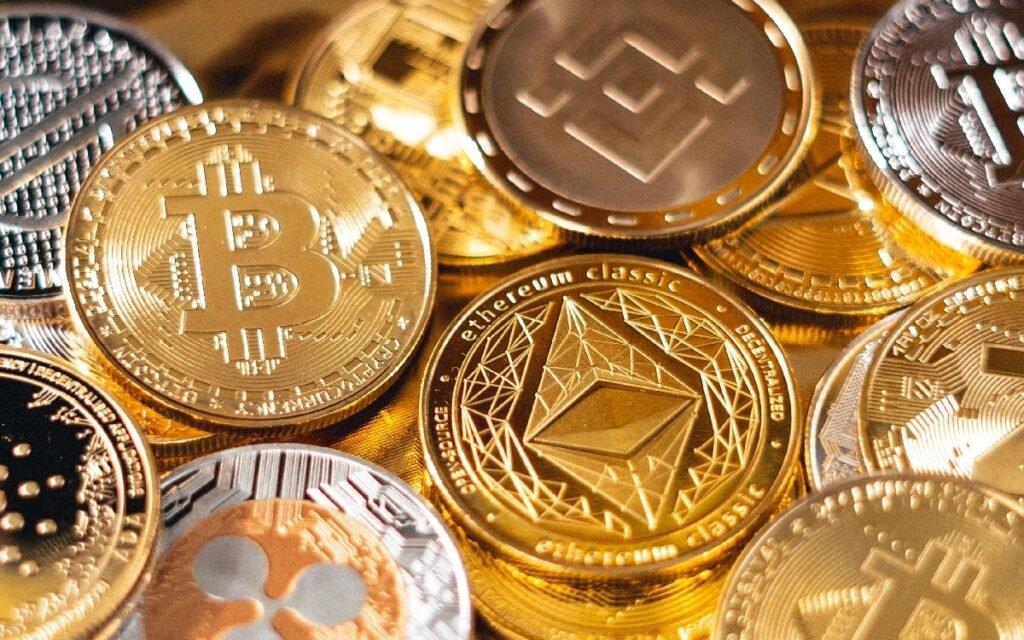Altcoins – The Diverse World Beyond Bitcoin

Bitcoin, the first and most well-known cryptocurrency, has paved the way for the creation of thousands of alternative cryptocurrencies, commonly known as altcoins. These digital currencies aim to improve upon or provide alternatives to Bitcoin, offering unique features and use cases. In this article, we will explore the world of altcoins, their different types, key characteristics, and their impact on the cryptocurrency market.
What are Altcoins?
Altcoins, short for “alternative coins,” refer to all cryptocurrencies other than Bitcoin. They encompass a wide range of digital assets that vary in terms of technology, functionality, and purpose. While some altcoins closely resemble Bitcoin, others introduce innovative features and applications that differentiate them from the original cryptocurrency.
Types of Altcoins
- Stablecoins
- Overview: Stablecoins are cryptocurrencies pegged to a stable asset, such as fiat currency (e.g., USD) or commodities (e.g., gold). They aim to minimize price volatility.
- Examples: Tether (USDT), USD Coin (USDC), DAI
- Use Cases: Hedging against volatility, facilitating trading, enabling cross-border payments
Privacy Coins
- Overview: Privacy coins focus on enhancing user anonymity and transaction privacy by using advanced cryptographic techniques.
- Examples: Monero (XMR), Zcash (ZEC), Dash (DASH)
- Use Cases: Confidential transactions, protecting user privacy
Utility Tokens
- Overview: Utility tokens provide access to specific services or products within a blockchain ecosystem. They are essential for the functioning of decentralized applications (DApps).
- Examples: Binance Coin (BNB), Chainlink (LINK), Uniswap (UNI)
- Use Cases: Paying for transaction fees, accessing platform services, incentivizing network participation
Security Tokens
- Overview: Security tokens represent ownership in an asset, such as equity, real estate, or bonds, and are subject to securities regulations.
- Examples: tZERO (TZROP), INX Token (INX)
- Use Cases: Investment, fractional ownership, regulatory compliance
Governance Tokens
- Overview: Governance tokens allow holders to participate in the decision-making process of a blockchain project, enabling decentralized governance.
- Examples: Maker (MKR), Compound (COMP), Aave (AAVE)
- Use Cases: Voting on protocol changes, influencing project development
Platform Coins
- Overview: Platform coins are native cryptocurrencies of blockchain platforms designed to support decentralized applications and smart contracts.
- Examples: Ethereum (ETH), Cardano (ADA), Polkadot (DOT)
- Use Cases: Fueling smart contracts, paying for transaction fees, supporting decentralized finance (DeFi) applications
Key Characteristics of Altcoins
- Innovation: Many altcoins introduce new features or improvements over Bitcoin, such as faster transaction times, enhanced privacy, and different consensus mechanisms.
- Diverse Use Cases: Altcoins serve a variety of purposes, from facilitating payments and investments to enabling decentralized applications and governance.
- Market Competition: The proliferation of altcoins creates a competitive environment that drives innovation and development within the cryptocurrency space.
- Volatility: Like Bitcoin, altcoins can be highly volatile, presenting both opportunities and risks for investors.
Popular Altcoins
- Ethereum (ETH)
- Overview: Ethereum is the second-largest cryptocurrency by market capitalization and the leading platform for decentralized applications and smart contracts.
- Key Features: Smart contract functionality, robust developer ecosystem, ongoing upgrades (Ethereum 2.0)
- Use Cases: Decentralized finance (DeFi), non-fungible tokens (NFTs), decentralized applications (DApps)
Ripple (XRP)
- Overview: Ripple focuses on enabling fast and low-cost international payments, primarily used by financial institutions.
- Key Features: Consensus algorithm (Ripple Protocol Consensus Algorithm), strong partnerships with banks and financial institutions
- Use Cases: Cross-border payments, remittances, financial services
Litecoin (LTC)
- Overview: Created as a “lighter” version of Bitcoin, Litecoin offers faster transaction times and a different hashing algorithm (Scrypt).
- Key Features: Faster block generation time, lower transaction fees, high liquidity
- Use Cases: Digital payments, peer-to-peer transactions
Cardano (ADA)
- Overview: Cardano is a third-generation blockchain platform known for its scientific approach and focus on scalability, interoperability, and sustainability.
- Key Features: Proof-of-stake consensus (Ouroboros), layered architecture, peer-reviewed development process
- Use Cases: Smart contracts, decentralized applications, governance
Chainlink (LINK)
- Overview: Chainlink provides decentralized oracles that connect smart contracts with real-world data.
- Key Features: Decentralized oracle network, secure and reliable data feeds, wide adoption in the DeFi space
- Use Cases: Smart contract execution, decentralized finance (DeFi), data integration
Challenges and Risks
While altcoins offer numerous opportunities, they also present certain challenges and risks:
- Regulatory Uncertainty: The regulatory environment for altcoins is still evolving, and changes in regulations can impact their legality and use.
- Security Concerns: Some altcoins and their platforms may be vulnerable to security breaches and exploits.
- Market Volatility: Altcoin prices can be highly volatile, leading to significant fluctuations in value.
- Scams and Fraud: The low barrier to entry for creating altcoins can attract fraudulent projects. Investors must conduct thorough due diligence.
Altcoins represent a diverse and dynamic segment of the cryptocurrency market, offering various features and use cases that differentiate them from Bitcoin. From enabling decentralized finance and governance to enhancing privacy and facilitating cross-border payments, altcoins have the potential to transform multiple industries. However, investing in altcoins requires careful consideration of their unique characteristics, risks, and regulatory environment. As the cryptocurrency market continues to evolve, altcoins will play a crucial role in driving innovation and expanding the possibilities of blockchain technology.
Alexia is the author at Research Snipers covering all technology news including Google, Apple, Android, Xiaomi, Huawei, Samsung News, and More.












